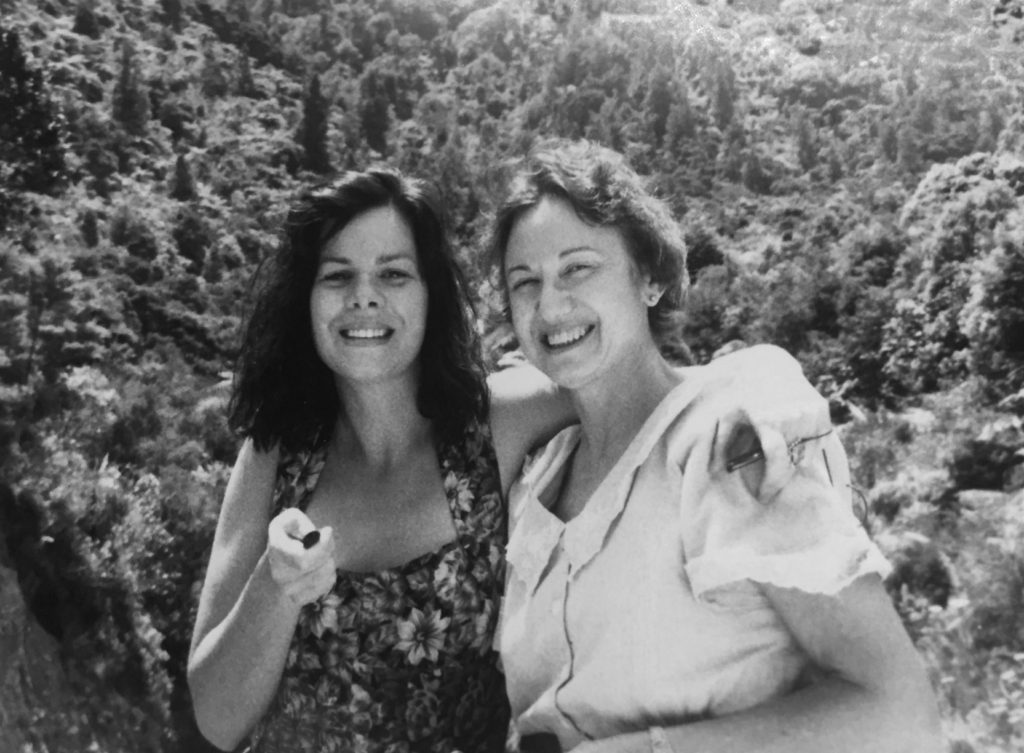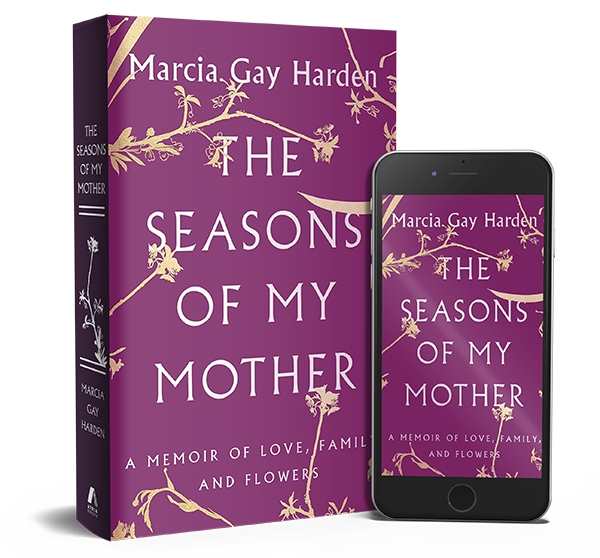
Have Difficult Conversation Before It’s Too Late
By Jackie Potts, Special to Lifescript

Coping with a loved one’s Alzheimer’s diagnosis could be a lot less scary when you know its early signs. Academy and Tony Award-winning actress Marcia Gay Harden wishes she had understood the condition better. In this exclusive Lifescript interview, Harden shares her mother’s Alzheimer’s symptoms and reveals how to empower yourself and your family when facing this devastating disease… Marcia Gay Harden has wonderful memories of her mother, Beverly, gardening and arranging flowers.
“She loved to be in the garden surrounded by birds and beauty,” she says.
But as her mother’s memory started to wither in the face of Alzheimer’s disease, Harden says she regrets that she and her 4 siblings didn’t recognize the symptoms sooner.
“We lost so much precious time not knowing enough about it and the options,” she says.Through a new campaign called Notes to Remember, Harden, who plays fearless Dr. Leanne Rorish on TV’s medical drama Code Black, is urging others to be brave enough to start those difficult conversations with older parents, spouses or loved ones about their health and end-of-life care.
In this exclusive Lifescript interview, Harden shares how she coped with her mother’s Alzheimer’s diagnosis and the critical questions everyone should ask.
Before your mother’s diagnosis, what did you know about Alzheimer’s?
Nothing. It happened to other people and other families. I had no idea.
Then you look at the internet, and you see there are [47] million people worldwide that suffer from dementia and Alzheimer’s. In the United States, there are 5.4 million with Alzheimer’s.
Before her Alzheimer’s diagnosis, did your mother talk about getting older?
She’d talk about people she knew or worked with – that she arranged flowers with – who were sharp in their 80s and 90s, and she’d always compliment that.
She would say, “That’s what I want.” She did not want to have this disease.Why was it hard to talk to your mom about Alzheimer’s? Sometimes there’s a sense that you don’t want to pry to find out what they’re feeling and going through to try to understand it.
Did your mother know she had Alzheimer’s?
Early on, my mom [said], “I feel something’s wrong. My memory is fragile. I’m forgetting things I shouldn’t forget.”
When she said those things, what did you think?
I was quite good at dismissing her fears. [I’d say,] “What do you mean, Mom? How do you even know?”
When did you really suspect something was wrong?
We were really good friends and traveled together all the time. During one of our travels – we were on the plane – Mom forgot in rapid succession where she had put her passport.She had been vehement that [she] wouldn’t [forget]. She wanted to carry the passport; she wanted to hold onto it because she wanted to remember where she had put it. She did not want it to be true that she was having memory loss.
She’d forget that she had found it and then she’d do it again and again. It was really tough.
That was [when I understood] there was an issue. She didn’t seem perfectly fine.
Were there other incidents?
A couple of weeks later, we were in Los Angeles, and she asked several times what dress she should wear. She went down the hall and got dressed in a very elaborate movie premiere dress.
And, again, that was a [sign] that something was not quite right.
- Difficulty with everyday tasks
- Repeating questions
- Struggling to find the right words or follow conversations
- Trouble paying bills or solving simple math problems
- Getting lost or experiencing confusion about time or place
- Misplacing things or putting them in odd places
- Changes in personality or appearance
What were your next steps?
On a trip back to New York, [my family and I] were searching for what [her unusual behavior] could be. Because we didn’t know any better, we used the word “dementia.”
[Editor’s note: Dementia is an umbrella term for all sorts of progressive brain diseases, including Alzheimer’s, Parkinson’s and Lewy body disease.]
When were you sure she had Alzheimer’s disease?
It took a couple of years before she was actually diagnosed, and a couple more years before we were all galvanized to take charge.
How was your experience with the doctors?
She had initially been diagnosed with early-onset dementia and then early-onset Alzheimer’s. So it was progressive. She had a great doctor who got together all the family members to talk about it.
How did your family react to your mom’s diagnosis?
God bless my brother and sisters. Everybody came together to do the very best we could for Mom. But it would have felt so much better [if the news had] come from Mom herself.
What do you regret?
I wish I could have been her advisor. My sister would laugh and say her “drill sergeant.”
I would have said, “Let’s put a note on every single thing in the house and talk about it.”
I often wonder if it would have made a difference for my mother had we been brave enough to open the conversation and have a heart-to-heart by telling her, “Let’s figure out what the future is going to look like and what we can do about it.” I’ll never know because, by the time we did it, we had lost so much precious time by not knowing enough about the disease, not knowing enough about the signs of it, not knowing enough about the options.
We didn’t have a map of the phrasing, I guess, which is why I have partnered with this Notes to Remember campaign to try and encourage people toward that bravery.
[Editor’s note: The Notes to Remember campaign is sponsored by Biogen, a pharmaceutical company.]
What would you tell other families to ask or do in the early stages?
I would have said to my mother, “Would you be part of some clinical trials?”
She’s very weak now, but she was different in the beginning. I’d say: “Talk to a lawyer. Make sure your estate is in place and your will is in shape.”
I’d say: “Take those heirloom assessments, so a history of families and heirlooms and moments isn’t lost.” Otherwise, what’s the point? It’s only precious when it’s part of your family’s story.
What’s the worst part of Alzheimer’s?
With Alzheimer’s, they can’t dictate anymore. They’re not able to [articulate their wishes]. That’s difficult for family members.
So the kids, wife, husband, lover, partner and community have to think for that person.
That’s a very difficult task to ask someone to do. And they all have to do whatever is their best idea for their loved ones.
Is there an unexpected blessing to Alzheimer’s?
[Alzheimer’s patients are] always in the moment. They can’t remember the past, and can’t imagine the future, so the moment is the only thing they have.
Has your mother’s Alzheimer’s affected the way you parent your kids?
I’m not having [my kids] feel guilty. I don’t want them to run into a brick wall in the middle of their lives and say, “Now, we have to stop what we’re doing and take care of Mama.”
I want them to know I’m okay [and explain] this is my future and this is what it should look like. And that’s one of the gifts of time that one gets with an early diagnosis.
How are you honoring your mother?
The good thing is that with my mom we were writing a book – about the time before her diagnosis – and still are.
I didn’t want to look back and say Mom can’t remember. I can remember for her.
I don’t want her legacy to be the disease. I want her legacy to be her artisanship, the gifts she gave her children, the traditions and all the things she wanted to pass on.
Her spirit might move on, but those things are her legacy.

